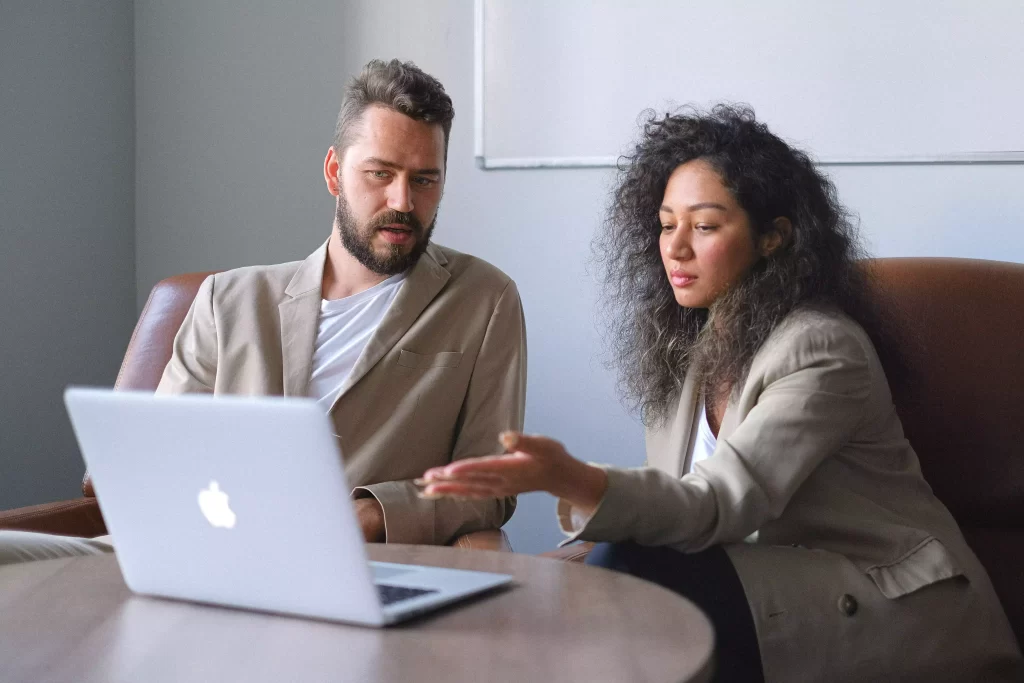Introduction:
Effective communication is an essential skill that can help you succeed in both your personal and professional life. Whether you’re speaking with a friend, coworker, or client, having strong communication skills can help you express your ideas clearly and build strong relationships. In this article, we’ll explore some practical tips for improving your communication skills.
Listen actively
Effective communication starts with active listening. When you’re having a conversation with someone, it’s important to give them your full attention. This means putting away your phone, turning off your computer, and focusing on what they’re saying. Try to listen for both the content of what they’re saying and the emotions behind it. This will help you understand their perspective and respond appropriately.
Example:
If you’re having a conversation with a coworker about a project, active listening might involve asking them questions to clarify their goals and objectives. It might also involve paraphrasing their comments back to them to ensure that you’ve understood their message correctly.
Speak clearly and concisely
When you’re speaking, it’s important to be clear and concise. This means avoiding jargon, speaking at a moderate pace, and enunciating your words. Try to keep your message brief and to the point. If you’re giving a presentation, use visual aids like slides or diagrams to help reinforce your message.
Example:
If you’re giving a presentation to a group of clients, using simple language and avoiding jargon can help ensure that your message is understood by everyone in the room. Additionally, keeping your message brief and to the point can help keep your audience engaged and prevent them from losing interest.
Ask questions
If you’re not sure about something, don’t be afraid to ask questions. Clarifying any misunderstandings can help prevent miscommunication and ensure that everyone is on the same page. Make sure to listen actively to their response and follow-up questions to show that you’re interested in their perspective.
Example:
If you’re working on a group project, asking questions can help ensure that everyone is on the same page. It can also help prevent misunderstandings and ensure that everyone’s goals and objectives are aligned.
Practice active listening
Active listening is a skill that takes practice. When you’re having a conversation, try to engage in active listening by nodding, making eye contact, and asking follow-up questions. This will show the other person that you value their opinion and are interested in what they have to say.
Example:
If you’re having a conversation with a friend, practicing active listening might involve nodding your head and making eye contact to show that you’re engaged in the conversation. It might also involve asking follow-up questions to show that you’re interested in their perspective.
Develop empathy
Empathy is the ability to understand and share the feelings of others. When you’re communicating with someone, it’s important to try to understand their perspective and emotions. This will help you communicate more effectively and build stronger relationships.
Example:
If you’re speaking with a coworker who is frustrated about a project, taking the time to understand their perspective and emotions can help you communicate more effectively. It can also help build stronger relationships and foster a more collaborative work environment.
Use body language
Nonverbal cues like facial expressions, posture, and gestures can convey a lot of meaning. Pay attention to your body language and use it to reinforce your verbal message. For example, maintaining eye contact can show that you’re engaged in the conversation while crossing your arms can convey defensiveness.
Example:
If you’re giving a presentation, standing up straight and making eye contact can help convey confidence and engagement. Additionally, using gestures and facial expressions can help reinforce your verbal message and make it more memorable.
Practice, practice, practice
Like any other skill, communication takes practice. Seek out opportunities to practice your communication skills, whether it’s through public speaking, group discussions, or one-on-one conversations. Pay attention to your strengths and weaknesses and work on improving them over time.
Example:
Seeking out opportunities to practice, such as joining a public speaking club or attending a communication workshop, can help you improve your abilities over time. It’s also important to seek feedback from others and be willing to make adjustments based on their comments.
Use technology to your advantage
In today’s digital age, there are many tools available that can help you improve your communication skills. For example, video conferencing tools like Zoom can help you connect with people remotely, while chatbots can help you provide better customer support. Take advantage of these tools to communicate more effectively and efficiently.
Example:
One example of using technology to your advantage in communication is by using video conferencing software for virtual meetings. This technology enables people from different locations to connect and communicate in real-time, saving time and money on travel expenses. Additionally, virtual meetings can provide an opportunity for more frequent communication and collaboration between team members, even when they are geographically dispersed. This technology can also help teams to work more efficiently and make decisions faster by allowing for quick and easy access to information and resources.
FAQs
Q: Why is communication important?
A: Effective communication is essential for building strong personal and professional relationships. It helps you express your thoughts and ideas clearly, understand others’ perspectives, and avoid misunderstandings.
Q: What are some techniques for active listening?
A: Active listening techniques include asking questions, paraphrasing, making eye contact, and demonstrating empathy. These techniques can help you better understand others’ perspectives and build stronger relationships.
Q: How can I speak more clearly and concisely?
A: To speak more clearly and concisely, use simple language, avoid jargon, and keep your message brief and to the point. Practice your delivery and seek feedback from others to improve your communication skills.
Q: How can I improve my body language?
A: Improving your body language involves standing up straight, making eye contact, using appropriate gestures and facial expressions, and projecting confidence and engagement. Practicing in front of a mirror or with a friend can help you become more aware of your body language and make improvements over time.
Q: What is the best way to practice communication skills?
A: Joining a public speaking club, attending a communication workshop, or seeking out opportunities to practice in your personal and professional life are all effective ways to improve your communication skills. Seeking feedback from others and being willing to make adjustments based on their comments is also important for growth and development.
Conclusion:
Improving your communication skills is essential for success in both your personal and professional life. By listening actively, speaking clearly and concisely, asking questions, practicing active listening, developing empathy, using body language, practicing regularly, and using technology to your advantage, you can become a more effective communicator. Remember, communication is a skill that takes practice, so don’t be afraid to put in the work to improve your abilities over time.

